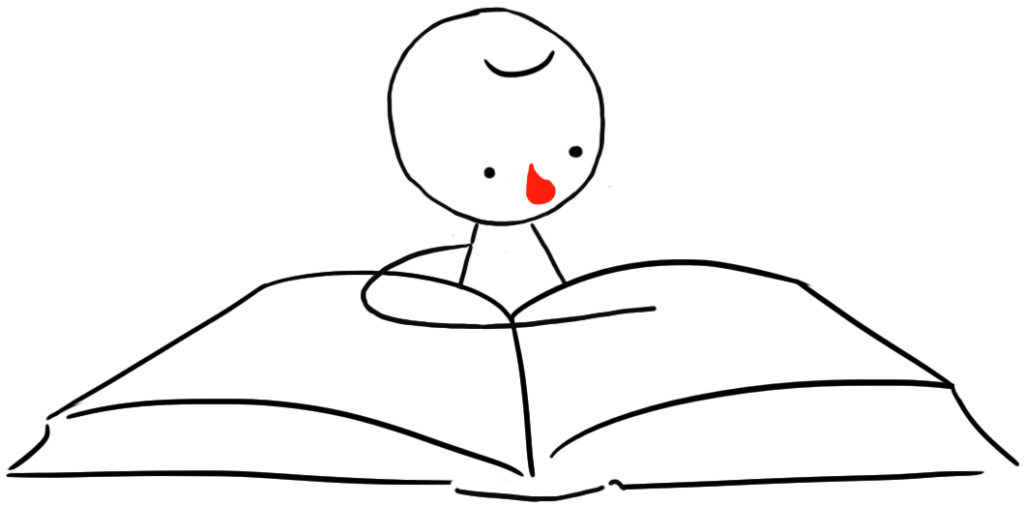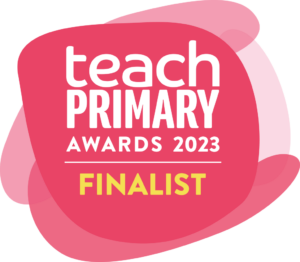Books for children

Humanism and atheism
What is humanism? How do I live without a god? And other big questions for kids (Wayland) by Michael Rosen and Annemarie Young (ages 8-14).
Belonging and Believing: My Humanist Family (Books at Press) by Gill Vaisey (ages 4-7) – learn about the lived experiences of a young boy and his humanist family
Atheism for Kids (Winter House Books) by Jessica Thorpe is a short introduction for younger children to what it means to be an atheist.
And for young adults we recommend The Young Atheist’s Handbook by Alom Shaha.
Thoughtful Tales for Growing Minds (Uganda Humanist Schools Trust) by Steve Hurd. These stories about the wildlife of Africa explore big themes and questions in an empathetic and humanist way, including friendship, curiosity, the Golden Rule, the wonders of the natural world, and the protection of the environment.
Science
For introductions to evolution and the history of life on earth for younger children we’d recommend
- Our Family Tree (Houghton Mifflin) by Lisa Westberg Peters
- What Mr Darwin Saw (Frances Lincoln Children’s Books) by Mick Manning
- Grandmother Fish (Feiwel & Friends) by Jonathan Tweet
- How the Borks Became (Otter-Barry Books) by Jonathan Emmett
- Moth (Bloomsbury) by Isabel Thomas
- Little Changes (CreateSpace Independent Publishing Platform) by Tiffany Taylor
- Stone Girl, Bone Girl (Frances Lincoln Children’s Books) by Laurence Anholt
- The Pebble in My Pocket (Frances Lincoln Children’s Books) by Meredith Hooper
- Human Journey (Red Shed) by Alice Roberts
And on the Big Bang and the history of the universe we’d recommend
- Older Than the Stars (Charlesbridge Publishing) by Karen C. Fox
- Once Upon a Star (Little Tiger Press Group) by James Carter
For introducing younger children to the wonders of science
- Mr Shaha’s Recipes for Wonder: adventures in science around the kitchen table (Scribe) by Alom Shaha and Emily Robertson
For older primary school children and teenagers
- The Magic of Reality: How we know what’s really true (Black Swan) by Richard Dawkins
- 100 Steps for Science: Why it works and how it happened (Wide Eyed Editions) by Lisa Jane Gillespie
And on the benefits of critical thinking
- How Do You Know It’s True: Discovering the Difference Between Science and Superstitions (Prometheus Books) by Hy Ruchlis
Philosophy
For a young person’s introduction to philosophy
- The Complete Philosophy Files (Orion Children’s Books) by Stephen Law
- Sophie’s World (W&N) by Jostein Gaarder
Rights, freedoms, equality, and doing good
- I Have the Right to Be a Child (Groundwood Books) by Alain Serres (translated by Sarah Ardizzone) describes the UN Convention on the Rights of the Child in an accessible way (including the right to freedom of expression… even if our parents disagree)
- Dreams of Freedom (Frances Lincoln Children’s Books) by Amnesty International uses quotes from famous figures to explore the many different freedoms we are all entitled to
- Declaration of the Rights of Boys and Girls (Little Island Books) by Elisabeth Brami explores the need to break free from gender stereotypes
- Good Night Stories for Rebel Girls (Particular Books) by Elena Favilli celebrates women who have changed the world
- Young, Gifted and Black (Wide Eyed Editions) by Jamia Wilson is a celebration of inspirational black heroes
- Rise Up: Ordinary Kids with Extraordinary Stories (Buster Books) by Amanda Li
- Guardians of the Planet (Buster Books) by Clive Gifford
- Be the Change, Make it Happen (Ivy Press) by Bernadette Russell introduces some of the many ways little actions can make a positive difference to the world
Fiction
The following books can support parents and young children with discussions around death
- Fox: A Circle of Life Story (Bloomsbury) by Isabel Thomas
- The Memory Tree (Orchard Books) by Britta Teckentrup
- Why do Things Die? (Usbourne) by Katie Daynes
- Cry, Heart, But Never Break (Enchanted Lion Books) by Glenn Ringtved
- The Boy and the Gorilla (Candlewick Press) by Jackie Azua Kramer
- The Heart and the Bottle (Harper Collins) by Oliver Jeffers
- Rabbityness (Child’s Play) by Jo Empson
- Badger’s Parting Gifts (Andersen Press) by Susan Varley
- Michael Rosen’s Sad Book (Walker Books) by Michael Rosen
- Charlotte’s Web (Puffin Classics) by EB White
- Always and Forever (Picture Corgi) by Alan Durant
- Granpa (Red Fox) by John Burningham
- When Dinosaurs Die (Perfection Learning) by L & M Brown
- Lifetimes (Bantam Books) by Bryan Mellonie and Robert Ingpen
And for young adults
- A Monster Calls (Walker Books) by Patrick Ness
Other recommended fiction
Picture books and books for primary school children
- Aesop’s Fables provides a rich collection of stories to promote discussion around morality
- Here We Are: Notes for Living on Planet Earth (HarperCollins Children’s Books) by Oliver Jeffers provides thoughts on what we know, how we should live, and how we should treat other people – there is still plenty to learn and it’s OK to ask questions
- Most People (Tilbury House Publishers) by Michael Leannah and Jennifer E Morris explores our shared values and makes the claim that most people are good and want to be happy
- Words and Your Heart (Simon & Schuster Children’s UK) by Kate Jane Neal addresses the power of words and the impact they can have on our emotions – on what makes us, us
- Can I Build Another Me? (Thames and Hudson Ltd) by Shinsuke Yoshitake explores our identity and what kind of thing we are
- A Book of Feelings (Walker Books) by Amanda McCardie describes how we all have feelings, some are positive, some are negative, but all are part of being human
- We’re all Wonders (Alfred a. Knopf Books for Young Readers) by RJ Palacio tells the story of a boy who looks different from everyone else and carries the message that ‘we can’t change how we look but we can change the way we see’
- Each Kindness (G P Putnam’s Sons) by Jacqueline Woodson explores the impact our actions have on other people and the importance of kindness to strangers
- When Dad Showed Me the Universe (Gecko Press) by Ulf Stark addresses the wonder of the universe but also the importance of being aware of what is right in front of us
- Me & Dog (Simon & Schuster Books For Young Readers) by Gene Weingarten explores what it means to be an atheist through a conversation between a boy and his dog
- Cave Baby (Macmillan Children’s Books) by Julia Donaldson describes the pleasures of freedom and creativity
- Beegu (Beegu by Alexis Deacon) by Alexis Deacon explores themes of friendship and difference
- I Wonder (Four Elephants Press) by Annaka Harris tells a story about the pleasures of curiosity and being comfortable with not knowing all the answers
- Small Things (Pajama Press) by Meg Tregonning addresses our anxieties and the awareness that we are not alone
- It Might Be An Apple (Thames and Hudson Ltd) by Shinsuke Yoshitake explores the pleasures of being sceptical, using our imagination, and trusting our senses
- What Do You Do with a Problem? (Compendium Inc) by Kobi Yamada describes how every problem can be an opportunity
- In My Heart: A Book of Feelings (Abrams Books) by Jo Witek is an exploration of the variety of different feelings we encounter
- One World Together (Frances Lincoln Children’s Books) by Catherine and Laurence Anholt addresses diversity and how differences are not a barrier to friendship
- Red: a Crayon’s Story (Greenwillow Books) by Michael Hall explores how we can find our true selves
- Silver Buttons (Walker Books) by Bob Graham raises an awareness of the many different lives being lived around the world at the same time
- The Red Tree (Hodder Children’s Books) by Shaun Tan shows how hope and inspiration can be found in the darkness
- Come With Me (Putnam Publishing Group) by Holly M McGhee addresses how we can overcome the sometimes scary world around us by observing little acts of kindness and being brave
- Lovely (Creston Books) by Jess Hong is a celebration of our differences with the message that ‘we are all lovely’
- The Liszts (Andersen Press) by Kyo Maclear addresses how questions can make life more interesting
- I am Josephine and I am a Living Thing (Franklin Watts) by Jan Thornhill asks what we share with other people and other living things, and how we are unique
- The various Frog and Toad books (HarperCollins Children’s Books) by Arnold Lobel explore many questions connected with friendship
- Bill’s New Frock (Egmont) by Anne Fine provides a fresh look at gender
- Truckers (Corgi) by Terry Pratchett
For older children and young adults
- His Dark Materials Trilogy (Scholastic) by Philip Pullman addresses questions on physics, freedom, and organised religion
- Chaos Walking Trilogy (Candlewick Press) by Patrick Ness explores themes of freedom and authoritarianism
- Small Gods, and The Amazing Maurice and His Educated Rodents (Corgi) by Terry Pratchett
- Not the End of the World (OUP Oxford) by Geraldine McCaughrean provides an alternative perspective on the story of the flood
- Wonder (Corgi Children’s) by RJ Palacio explores what it is like to be different and the value of acceptance and friendship

